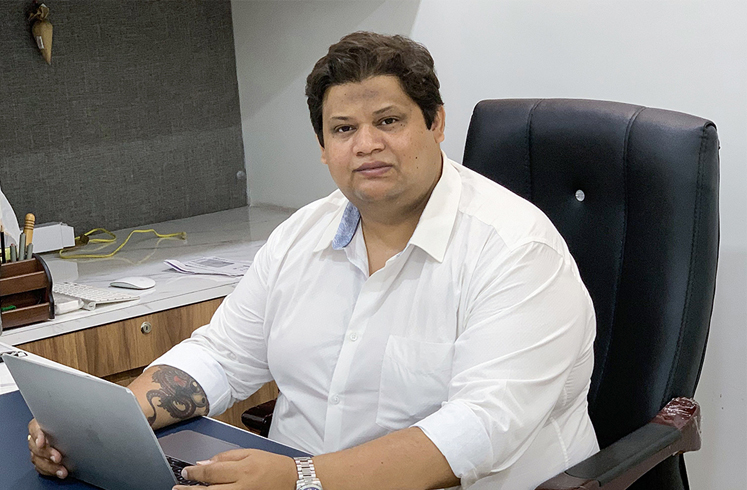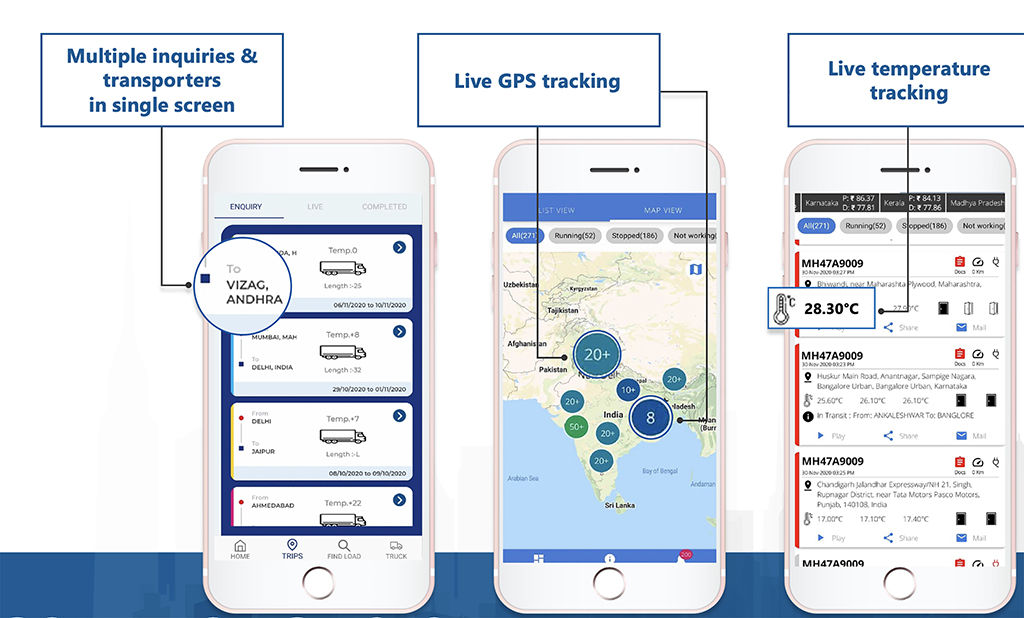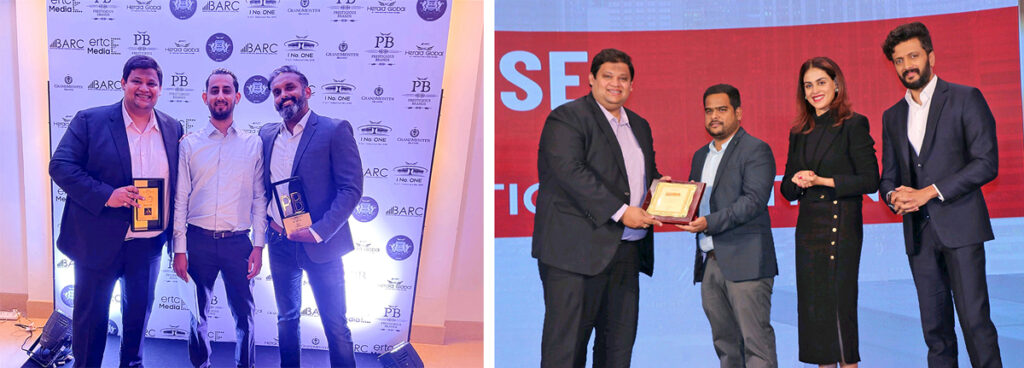Celcius is one-of-a-kind aggregator platform that provides solutions for both reefer logistics and cold storage warehousing with the goal of bridging the gap between shippers and transporters across the country. Their expertise in providing the right infrastructure and technology needed to upgrade the levels of cold chain collaboration is what sets their business model apart, notes Rajesh Rajgor in this exclusive interview with Swarup Bose, Founder and CEO, Celcius

Over the last few years, on-demand aggregators have begun to disrupt the transportation space with their unique products and services. It was only a matter of time that such an initiative would be presented to the scattered and largely unorganised cold chain segment in India. Following the pandemic, there has been an increase in demand for cold chain solutions in India. The corona virus vaccine, the nation’s most pressing need, is heavily reliant on a robust and seamless cold chain network for effective distribution. Apart from this, the huge requirements for the transport of dairy and farm produce, especially in the Tier II and Tier III cities and beyond grew gradually as customers moved online in search of contactless options to meet their day-to-day needs.
It, therefore, was critical that people could remain indoors while still having access to fresh provisions. It was this that led to the entry of Swarup Bose and co-founders Rajneesh Raman and Arbind Jain who decided to bridge the gap between shippers and transporters across the country by effectively utilising the existing infrastructure and at many places also upgrading the unorganised fleet operators. Elaborates Swarup: “Our goal is to create a technology-driven solution to the problems of India’s traditional cold chain network. With the size of our country and the fact that we produce a huge volume of agricultural and pharmaceutical products, it is surprising that we still lack a lot in terms of an efficient cold chain supply chain network.”
“We wanted to do something innovative and the pandemic only cemented our belief that India needs a network system in cold chain where all the cold chain entities can connect with each other transparently. In a short span of time since our inception, we have on-boarded 2,500 vehicles and enabled them with tracking systems, IOTs, GPS sensors, thermal sensors, door sensors, etc. All these have been installed and operated by us. We help the transporters to upgrade their assets and promise them loads on getting on-boarded with these basic upgrades,” he adds.
The company currently offers the software tie-up for free as they want the industry to be on the same page and communicate on one single platform, transparently. “It is important that the industry interacts with our software before we charge any subscription fees. Once they get comfortable using it, we can develop the technologies further and make it a proper national level offering. Currently, every time the load is confirmed we charge a 5-10 per cent commission depending on the product. Higher the value of the product the lesser we charge and the lower the value the higher we charge. It is still lesser than what traditional brokers charge as margins,” reveals Swarup.
Celcius’ belief in their system yielded immense benefits and they could expand to 90 cities and transport over 3,000 tonnes of perishable cargo for industries such as dairy, pharmaceutical, fruits and seafood in a short span of eight months. Swarup shares: “In the existing marketplace we are getting roughly 5-7 crore enquires per month. We are not only in charge of getting transporters on the app with us but also make sure they run properly and get them loads. We believe we are slowly becoming the backbone of the cold chain industry in India by organising things.”

Excelling with Conviction
The company has recently raised USD 5,00,000 in seed funding from Mumbai Angels Network, a premium start-up investment platform for early-stage venture investments, as well as Huddle, Lumis Partners and other investors from Nigeria, Malaysia and the United States. This includes the funds raised by Celcius in a seed funding round in May. The Mumbai-based start-up will use the newly infused capital to expand its reach across various cities as well as remote areas of the country, in addition to expanding its team and establishing headquarters in other cities to provide better localised cold chain solutions.
“Right now we are present in 90 cities – from Leh to Coimbatore to Odisha to Mumbai – every part of India – and while we expand we will also consolidate cities we have already connected with. Such is the business model that if we go from place A to B, we do get enquiries for return load from B, thereby establishing our network at B and helping us spreading our reach. The real game-changer will be Tier II, III and IV cities. There are many untapped, ice cream curd manufacturers and milk transporters while hydroponic farming is developing across these cities in India. These new producers will need cold storage backups to spread across many more cities. Hence, even though we are taking one step at a time we are sure we will be able to cover 250-300 cities by the end of this year,” asserts Swarup.
Yet another advantage of a digital network is the transparency that the system assures. Celcius being a third-party entity shares accurate reports with the shipper every three to four hours. Explains Swarup: “For us both shippers and transporters are clients. The system is completely automated, right from bidding for load to loading, on route temperature monitoring, tracking the vehicle to unloading – everything is recorded and real-time. We also have an operations’ team monitoring the vehicles and assisting our clients in case of any emergency. If a vehicle breaks down, we provide a relieving vehicle within three hours. Hence, the shipper can be rest assured that not only we book the vehicle for them but we take care of the journey too.”
Streamlining Processes
In order to iron out day-to-day pain points that a trucker faces, Celcius has taken care of the basics as well as the emergencies. The company has a list of parameters that they check and or upgrade the transporter with before boarding it on the marketplace. Given the fact that they do not own the vehicles, maintaining their efficiency is Celcius’ top priority. “When our trucks start from one place to another, we make sure they carry all the documentation, PODs, LRs, certificates, perishable items board sticker, etc. Doing this, it is easier to move between the states. When we onboard the vehicle we ensure it is up-to-date, physically inspect the vehicle and give the report to the transporter about any upgrade. This ensures we have fewer problems travelling across the country compared to what a normal transporter would face. We concentrate on maintaining the assets,” Swarup adds.
As the company does not own any vehicles, Celcius does not have to worry about the EMI payments for the vehicles or paying drivers. Instead, the focus is on streamlining the route operations for the vehicles. “We also consult transporters to buy products from top brands in India both in refrigeration units as well as material to be used in building the refrigerated bodies. We are also building a network of service centres and collaborating with tyre manufacturers for availability of quality tyres on time. We have planned for Celcius’ authorised service centres and will be tying up with small garages to ensure our vehicles get priority services,” Swarup informs.
“Another area that we are concentrating on is to invest a huge amount for on-boarding smaller vehicles for last mile deliveries. We will put our software and route optimisation to use to make sure that these smaller vehicles also carry multiple loads. Our aim is to make one vehicle work with five clients and that’s where the scalability and optimisation of the asset will be achieved,” he adds. Celcius also plans to expand its offerings by incorporating a Transport Management System (TMS) and a Warehouse Management System (WMS), transforming the company into a one-stop shop for all cold chain needs.

“We have close to 75 cold storages on board and have started integrating them with our software. We have not yet opened it as a commercial offering but it will be done in October as part of the second phase of our expansion. The on-boarding is still on, especially of individual warehouses and bigger companies having free space that is underutilised. We as consultants would upgrade their facilities, get them all the necessary cold chain systems like proper cooling circulation systems, sensors, etc. Once this is set up, we can open our warehouses to pharmaceutical and dairy companies and then can control our inventory across India,” Swarup reveals.
It is evident that with the aggregator model attaining success, Celcius has proven that one would not need to own trucks or warehousing centres for efficient cold chain distribution. They have beautifully pioneered various systems and are making an impact in the refrigerated ecosystem by facilitating vaccine delivery, reducing food waste and empowering regional transporters to build a last mile delivery network. “The cold storage supply chain is an important but difficult component of a country’s growth infrastructure. It extends the shelf life of perishable and temperature-sensitive goods and allows them to be distributed even to the outskirts. We want to solve the bottlenecks in a novel way by establishing and excelling at a cold chain online marketplace for a complete cold storage supply chain in India,” Swarup concludes.